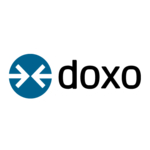Sibos 2018: trade finance for corporates is getting a major upgrade
Backed by eight major banks, with the potential to unleash $1 trillion in trade, the Voltron project is being heralded as a major leap forward for the trade finance process.
As blockchain for business moves into production, corporates must now make the decision whether to be a leader or a follower.
R3’s Aaron Seabrook explores how blockchain is simplifying letters of credit and outlines how Voltron is set to revolutionise trade finance, delivering an open industry platform for letters or credit, enabling exchange documents and value across an open network.
Letters of credit are changing for the first time in centuries. This presents wide-ranging implications for the businesses that use them: shorter settlement times, instant discrepancy resolution, simplified sanctions screening. Firms must make the strategic choice now to lead the innovation or follow the crowd and risk being left behind.
Every growing global business needs finance. In 2017 alone, $15.5 trillion of merchandise exports were transported around the world across sea, air, rail and road, and as much as 80% of this global trade required financing.
Traditional technology required corporates to log into multiple portals, and juggle relationships and documentation for each shipment. Despite this complexity, cumbersome and time-consuming paper-based processes are still commonplace.
Many in the industry were convinced that digitisation would be a silver bullet for some of the major challenges in trade financing. However, each party still maintains its own proprietary source of information, and so digital documentation needs to be checked and re-entered at every step of the process. Trade finance is inherently decentralised and trying to force centralised architecture upon it is akin to trying to fit a square peg into a round hole.
This is where blockchain comes in.
Blockchain: a gamechanger for trade finance
In February 2018, R3’s blockchain platform, Corda, was used to issue a letter of credit on behalf of US food and agriculture firm Cargill, facilitating a bulk shipment of soybean meal from Argentina to Malaysia.
The blockchain-based transaction was performed in 24 hours. This is an enormous leap in efficiency over the usual five-to-ten days it takes to complete such exchanges through existing systems.
It demonstrated that blockchain could create a streamlined system for letters of credit. Blockchain-based LCs are building a future where each business has a single channel to connect to their trading partners across multiple networks and different technology solutions.
The need for reconciliation of paper or digital records is completely removed by Corda because all parties are linked on the platform and updates are instantaneous.
With Corda, privacy is locked in. Unlike public blockchain platforms, Corda only sends data to those who have a “need to know”. This unique feature emerged from the requirements of financial institutions which need to ensure the confidentiality of trades and agreements while also capturing the benefits of a shared distributed ledger infrastructure.
Building upon the live transaction with Cargill, the Voltron initiative has now launched open industry platform, corporate customer pilot programme and technology partner programme on the Corda Network. The ecosystem of partners connected to the Voltron app on Corda continues to grow, and we are rapidly moving ahead with taking the solution to market.
Don’t be left behind
The emergence of blockchain technology is a watershed moment for trade finance, offering an innovative solution uniquely equipped to tackle the nuances and complexities of the industry.
Why should corporates care?
It’s simple. Blockchain can reduce inefficiencies in trade and supply chains enabling faster verification and reconciliation of records, and the mutualisation of costs to automate trade finance workflows through smart contracts.
R3’s Corda has been leading the pack in trade finance since its inception and we firmly believe that this technology will ultimately make trade finance more inclusive and available to businesses of all sizes and in all regions. Firms must act now to embrace this once in a generation opportunity to lead the trade finance blockchain revolution.
Welcome to the future of trade finance. Be part of it.
Click here to see more of what’s going on at Sibos, including our flagship Daily News at Sibos editions.
Follow us on Twitter @DailyNewsSibos











































